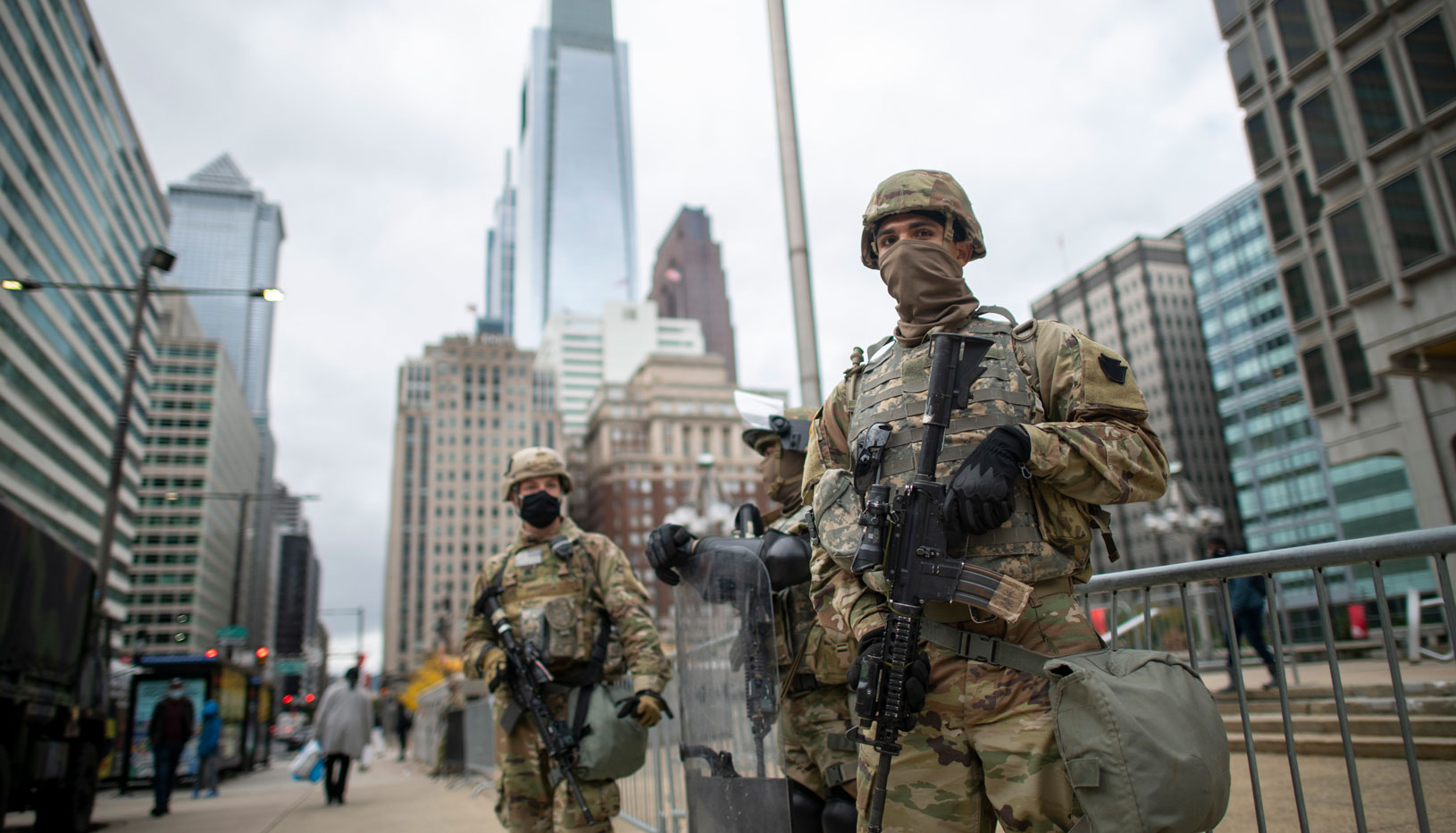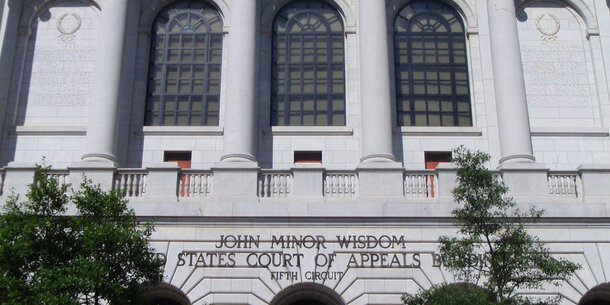This article first appeared in Slate.
As recent reports have revealed, former President Donald Trump and his allies are making plans for how a second Trump administration would use the powers of the federal government to punish Trump’s critics and political opponents. Among other things, Trump would reportedly invoke the Insurrection Act — a law that gives the president nearly unchecked powers to use the military as a domestic police force — on his first day in office, so that he could quash any public protests against him.
Unless Congress acts now to reform this dangerous and antiquated law, there’s little anyone could do to stop him.
Federal military forces are usually barred from enforcing civilian laws by the Posse Comitatus Act. This prohibition reflects a tradition in American law and political thought that views an army turned inward as an inherent threat to democracy and individual liberty. But the Posse Comitatus Act is not an absolute rule. It allows federal troops to participate in law enforcement when doing so has been expressly authorized by Congress.
The Insurrection Act provides that authorization. The intent behind the act is to allow the president to use the military to assist civilian authorities when they are overwhelmed by an insurrection, rebellion, or other civil unrest, or to enforce civil rights laws when state or local governments can’t or won’t enforce them. In such cases, a narrow exception to the general rule against using the military for law enforcement makes good sense. The problem is that the Insurrection Act creates a giant loophole in the Posse Comitatus Act rather than a limited exception to it.
The Insurrection Act’s central failing is that it grants virtually limitless discretion to the president. Its vague and archaic language — it was first enacted in 1792, and last updated in 1874 — provides little meaningful guidance as to what situations do or not warrant deployment. One provision, for example, empowers the president to use the military or “any other means” to “take such measures as he considers necessary” to suppress any “unlawful combination[] or conspiracy” that “opposes or obstructs the execution of the laws of the United States or impedes the course of justice under those laws.” Read literally, this would permit the president to deploy the Marines to, say, arrest and detain two people suspected of conspiring to intimidate a witness in a federal trial.
Compounding the problem, the Supreme Court ruled in 1827 that the president alone decides whether invoking the Insurrection Act is justified; the courts may not review or second-guess that determination. As for Congress, if it disapproves of a president’s use of the act, its only recourse is to pass a law ending the deployment. The president would likely refuse to sign such a law, and Congress would then have to muster a two-thirds supermajority to override the president’s veto.
These flaws result in large part from Congress’s failure to update the Insurrection Act to meet the needs of a changing nation. Certain sections still look much as they did when Congress passed the first version of the Insurrection Act in 1792 — except that safeguards in the original law that allowed the courts or Congress to check the president’s authority have long since been removed.
The Insurrection Act’s broadest provisions — including the section authorizing the president to use the military or “any other means” to suppress seemingly any violation of federal law — were added in direct response to the Civil War and the white supremacist terrorist insurgency that ravaged the former Confederacy during Reconstruction. These provisions were designed for a 19th century country at war, at a time when modern law enforcement agencies were in their infancy and even relatively minor unrest might be more than civilian authorities could handle alone. Nearly 150 years later, change is long overdue.
The law’s anachronisms leave it ripe for abuse. During the civil rights era, presidents properly invoked the Insurrection Act to enforce desegregation in the South against local and state opposition. But several presidents have also used it to suppress labor movements and to quell so-called “race riots” that were often triggered by state violence against people of color.
As president, Trump reportedly displayed keen interest in using the Insurrection Act to suppress Black Lives Matter protesters in the summer of 2020. Even more ominously, several Trump allies urged him to invoke the Insurrection Act in an effort to stay in power after losing the 2020 presidential election.
The Brennan Center has proposed reforms to prevent abuse of the Insurrection Act. They include clarifying and narrowing the criteria for military deployments, specifying what actions are and are not authorized when the law is invoked, and empowering both Congress and the courts to serve as checks against abuse or overreach. Crucially, they would preserve the president’s flexibility to respond quickly and decisively to a true crisis that civilian authorities are unable to handle. In other words, they would amend the language of the law to conform to its underlying intent, rather than providing a blank check to the president.
Congress should take up these or similar reforms without delay. Our nation is faced with the prospect of a president willing to use the United States military as his own personal domestic police force. The danger that this would pose to democracy cannot be overstated, but it can — and must — be averted.







